- Home >
- Botanica Immune Strength Compound - 50ml - Botanica
Immune Strength Compound - 50ml - Botanica
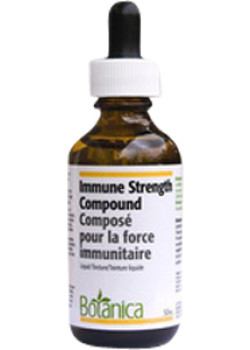
We're sorry, we no longer carry this item.
Check These out
Suggested, Similar, & Related Products:
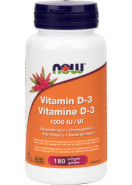
Sale: $9.99
Reg.: $14.99 (Save $5.00)

Sale: $52.86
Reg.: $65.97 (Save $13.11)
(Click Add to Select Bonus)

Sale: $27.99
Reg.: $41.99 (Save $14.00)
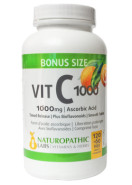
Sale: $14.99
Reg.: $19.99 (Save $5.00)
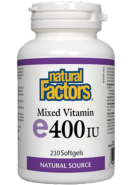
Sale: $22.99
Reg.: $38.99 (Save $16.00)
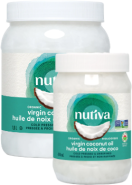
Sale: $34.99
Reg.: $39.99 (Save $5.00)
(Click Add to Select Bonus)
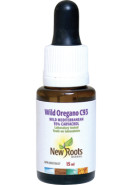
Sale: $12.79
Reg.: $14.65 (Save $1.86)

Sale: $59.98
Reg.: $69.98 (Save $10.00)
(Click Add to Select Bonus)
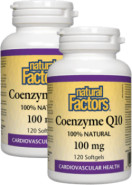
Sale: $39.99
Reg.: $59.99 (Save $20.00)
Or, Shop our Latest Deals:
Shop Now >Format
 Liquid
Liquid
50ml
Dosage
60-100 drops (3-5ml) to be taken 4 times daily. For chronic conditions this formula should be taken continuously for an extended period of time.
Important Information
Consult health care practitioner prior to use if you're pregnant or breastfeeding.
- Enhances immune reservoir
- Improves digestion
- Normalizes immune activity
- Restores energy & balance to the body
- Helps you deal with chronic disease more efficiently
Related Videos
No Related VideosRelated Articles
Articles by a naturopathic doctor.
Botanica, teams up with Nutrition Artisans , experts at creating each one of their products, to make a high potency fish oil, Perfect Omega. Botanica’s other top products include; best selling immune support, Immune Strength Compound, plus Botanica's Organic Turmeric Golden Mylk, an anti-inflammatory food supplement. Botanica is dedicated and known for quality artisanal supplements.
Immune System Support
The immune system is the police force of the body. It is a complex system of cells that defend the body from invading organisms, regulate inflammation and control abnormal cell growth. Many organs are involved in the immune response, the bone marrow, lymphatic system, thymus, liver and spleen. Bone marrow produces red blood cells, white blood cells and platelets.
The spleen is a location where immune cells can monitor the blood for foreign matter. It also speeds up red blood cell production and activates blood clotting. The liver can increase body temperature and induce sweating to help fight off infections. The thymus produces B cells, which make antibodies, and T cells, which are part of the immune response.
The immune system is capable of fighting off intruders and remembering them so that they are killed off quickly if they invade again. The immune system must be able to differentiate self from non-self in order to know what to attack. If it does not recognize the body’s own tissue than autoimmune diseases occurs.
The immune system can be compromised by:
Physical and emotional stress has been shown in studies to depress the amount of circulating immune cells. Examples of possible stressors are excessive exercise, surgery, a long illness, and loss of a job or death of a loved one. The sympathetic nervous system is activated by stress and causes increased heart rate and blood pressure, and a heightening of the body’s senses. It decreases the functioning of systems that are not essential for fighting or fleeing a situation. This includes immunity. Stress also causes increased inflammation and a build –up of damaging agents called free radicals. These substances can interfere with normal immune functioning.
Poor dietary habits inhibit the immune system by creating deficiencies in protein, vitamins and minerals. A healthy diet, with sufficient protein intake, supports the immune system because the immune cells are made of protein and are in a constant state of renewal. The immune cells use a variety of vitamins and minerals to carry out their jobs. The most important nutrients are vitamin A, vitamin B6, vitamin C, vitamin E, selenium, zinc and essential fatty acids. For example, vitamin C strengthens white blood cells and prevents the multiplication of bacteria and viruses. Deficiency of any one of these nutrients impairs the immune response.
Dietary sugar, especially white sugar, has been directly linked to depression of the immune system, immediately after its consumption. One study showed that eating three and a half oz. of simple sugar reduced the ability of white blood cells to destroy bacteria. Sugar also provides fuel for invading organisms, like bacteria and fungus, thus strengthening their attack.
Sleep is an essential component of our body’s repair mechanisms. During sleep the body in an anabolic, or building, state. Insomnia prevents the renewal of immune cells. Over time this leads to a decrease in immune functioning. Lack of sleep also stresses the body and usually occurs with an increase in sympathetic nervous system function. The immune system is depressed by the mechanism described in previous paragraphs.
Many medications, especially cortisone and antibiotics, affect the immune system, especially when taken for long periods of time. Cortisone suppresses the bone marrow and antibiotics kill beneficial bacteria. Toxic substances, including excessive alcohol and heavy metals, depress the function of the immune system or cause immune cells to prematurely die.
Some of the most important players in the immune system are not part of our own body. Friendly bacteria, often called probiotics, line the digestive tract, sinuses and other mucosal surfaces. On all of the surfaces they prevent infection with other microbes.
In the digestive tract they also break down food particles and manufacture vitamins. Friendly bacteria are in a constant state of renewal. Frequent infections can be due to an imbalance of friendly bacteria. It is easy to upset this balance by improper diet or taking medications like antibiotics.
Lack of physical activity weakens the immune response by hampering the ability of immune cells to get to where they are needed.
The lymphatic channels act as highways for immune cells but they contain no musculature of their own. They depend on the activity of surrounding muscles to push the lymph fluid around the body.
Here are some conditions that commonly affect the immune system:
In a healthy system abnormal cells are destroyed by the immune system. Tumours form when the abnormal cell multiplies, unchecked by the immune system, into a mass of tissue. If the cells do not pose a threat to health they are called benign. Malignant tumours pose a threat to the body. They can damage surrounding tissues, move to other areas of the body and will grow back if removed.
Colds and flus are a part of everyday life. They are usually caused by viruses, although if left untreated, bacteria can move in and cause infection as well. Lingering or recurrent infection is a signal of an immune system that is overwhelmed.
Environmental allergies can be any substance but the most common ones are dust, pollen, animal hair, animal dander, insect bites, grasses, moulds and fungus, cleaning products and metal in costume jewelry. The immune system incorrectly views allergens as a threat to the body. When the allergen contacts a mucous membrane inflammation occurs, due to the release of chemicals such as histamine. Some researchers postulate that this condition may be due to the build-up of environmental toxins. These toxins cause an additional strain on the body’s immune system. The hyperactive system then responds inappropriately to stimuli that are normally found in the environment.
Food allergies involve antibody responses to food. Allergens can be any food substance but the most common ones are dairy products, peanuts, eggs, wheat, corn, soy, the nightshade family, food additives and preservatives and medications like penicillin and aspirin. Some researchers postulate that early introduction of foods to infants’ causes food allergies. Other reasons for food allergies are the build-up of environmental toxins and heredity.
Autoimmunity is when our natural immunity turns against us and attacks our healthy body cells. Some common autoimmune conditions are: Celiac disease, lupus, psoriasis, Addison’s Disease, rheumatoid arthritis, multiple sclerosis, and inflammatory bowel disease.
- Reviews
- POST A NEW REVIEW
Immune Strength Compound - 50ml - Botanica
(1 review)Recommendation
0%
0 out of 1 viewers would recommend this product to a friend
helpful votes
0
0 customers found this product reviews helpful
-
Date - Newest First
- Date - Newest First
- Highest Rated
- Most Helpful
1 Item(s)
1 Item(s)





















